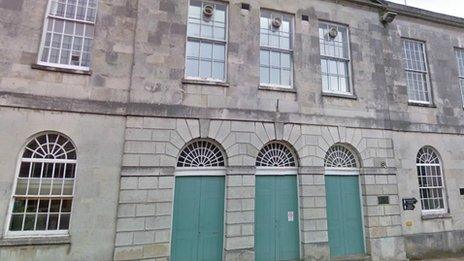Dorchester's Tolpuddle Martyrs court revamp stories unfold
- Published
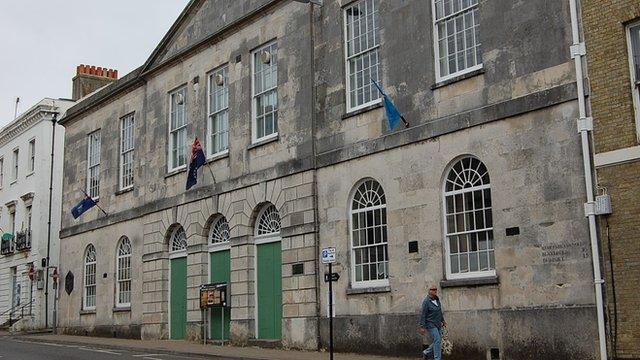
The Grade-I listed Shire Hall was the scene of the Tolpuddle Martyrs' trial in the 1830s
A boy deported for stealing shoes and two brothers hanged for burglary are some of the stories set to feature at a Georgian court building when it is transformed into a tourist attraction.
Planning permission for Dorchester's Grade-I listed Shire Hall, where the Tolpuddle Martyrs also faced trial in 1834, was granted last July.
The trial of the six farm labourers is perhaps the best-known case in the early history of trade unions.
Building work will start next spring.
The project, which will feature some of the cases heard on High West Street between 1800 and 1955, received £1.5m of Heritage Lottery funding in June.
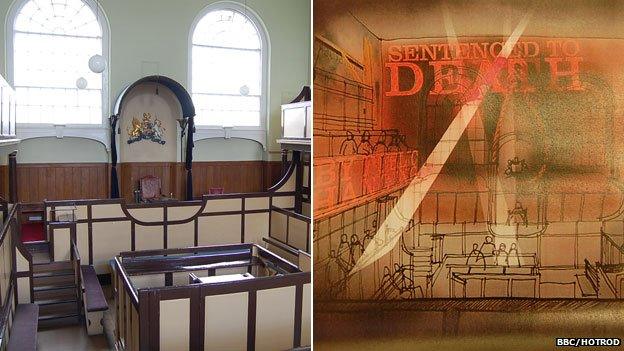
The visitor centre is likely to feature projections and live re-enactments by actors
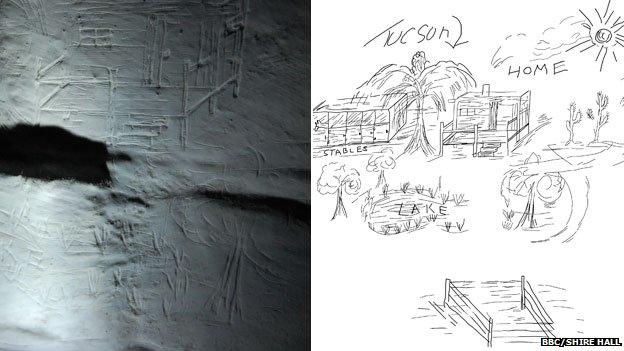
Research has been carried out to decipher some of the etchings in the solitary cells
"Stealing clothes and food was very common in the 1800s because of the level of poverty," project manager Sarah Cairns said.
"In 1838, Elijah Upjohn, aged 16, was sentenced to seven years transportation to Tasmania for stealing a pair of boots and shoes.
"In another case, Thomas and William Harvey and their uncle Thomas Dossiter were sentenced to death and hanged after being found guilty of a burglary in Milton Abbas.
"It was a very different justice system."
Research being carried out for the revamp showed Upjohn eventually shared a cell in Australia with Ned Kelly of the infamous Kelly Gang, Ms Cairns added.
"It's amazing the people we have discovered," she said.
The project, which has been working with the Dorset History Centre, has also been trying to decipher some of the etchings in the solitary cells to find out who made them.
"It would appear many were left by US servicemen during the Second World War, including one which appears to be a Tucson ranch," Ms Cairns said.
The £2.9m visitor centre, which is expected to open in September 2017, is likely to feature projections so there is "minimal intervention" on the listed building, Ms Cairns said.
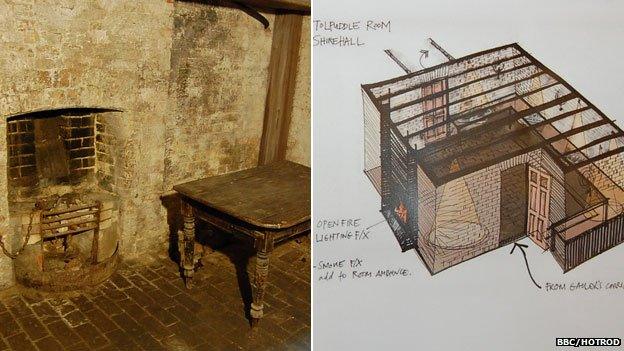
Audio recordings will be used to tell some of the stories, including in the Tolpuddle Martyrs cell
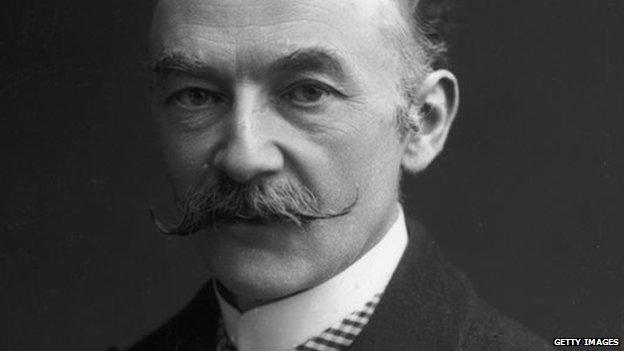
The writer Thomas Hardy served as a magistrate at the court

The Tolpuddle Martyrs
Farmhand George Loveless and five fellow workers; his brother James Loveless, James Brine, James Hammett, John Standfield and Thomas Standfield, met under a tree in 1834 to form a "friendly society" to protest against their meagre pay of six shillings a week.
They were arrested for the crime of swearing an oath of secrecy and sentenced to seven years' transportation to an Australian penal colony.
After the sentence was pronounced, popular opinion swung in support of the men. There was a demonstration in London and an 800,000-strong petition was delivered to Parliament.
The government eventually relented and the men returned home with free pardons.
The village hosts the annual Tolpuddle Martyrs Festival each July in their honour.

- Published26 June 2015
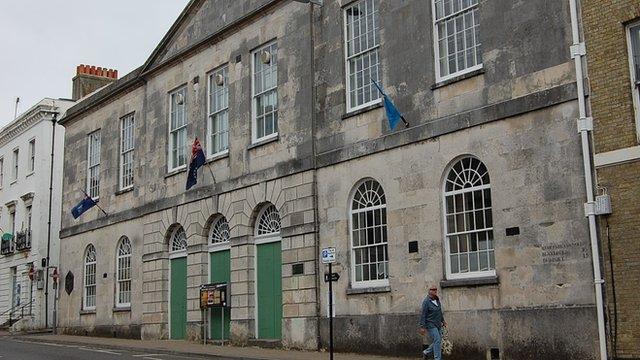
- Published29 November 2014

- Published16 July 2014

- Published7 November 2014
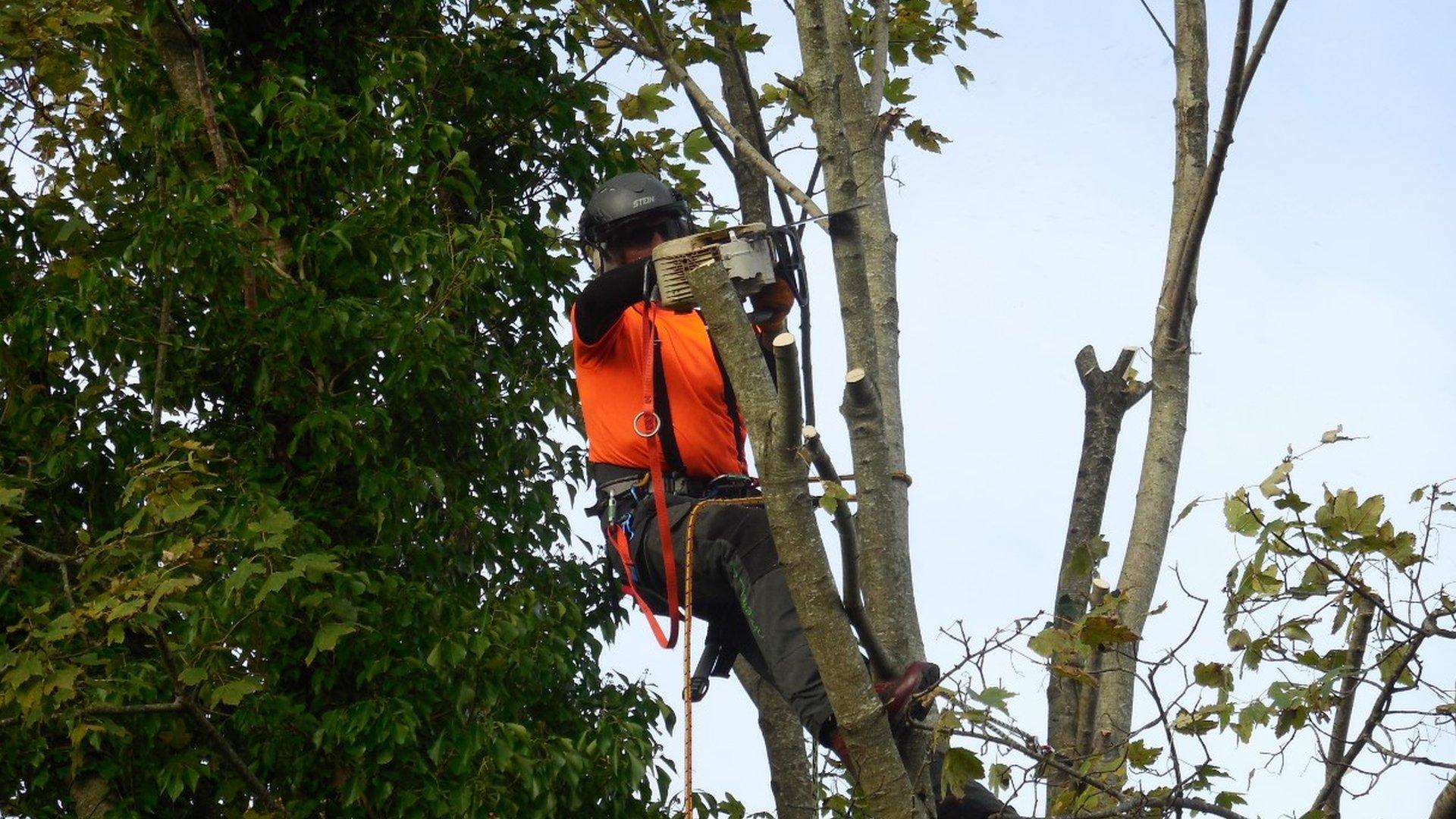
- Published23 June 2014
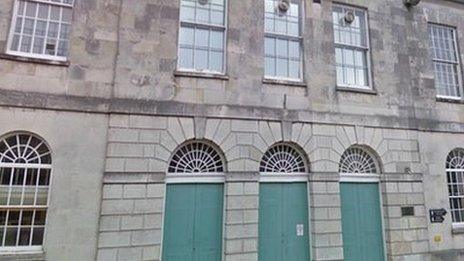
- Published17 August 2013
